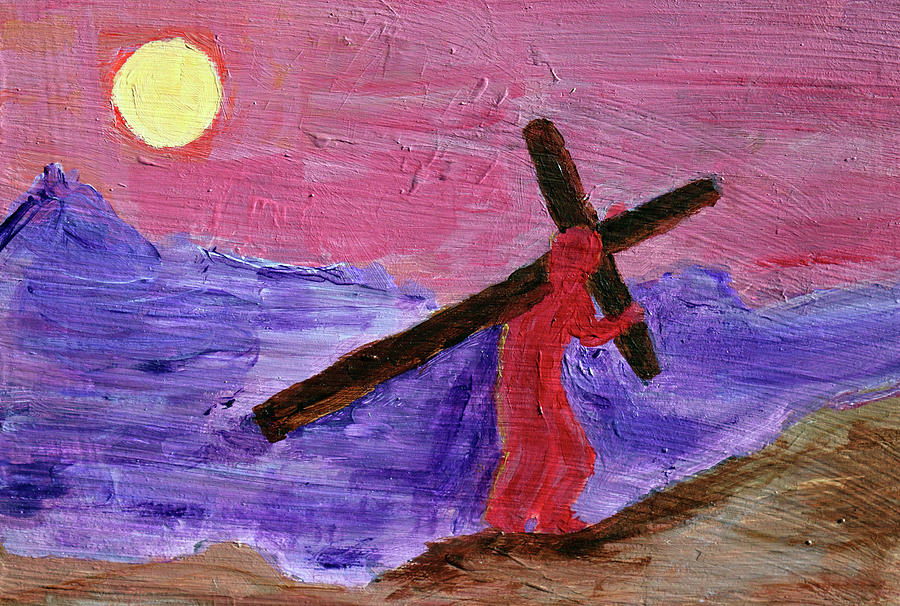Parkland Students take up their cross
‘If any want to become my followers, let them deny themselves and take up their cross and follow me. Mark 8:34a

I've been inspired by how the survivors of the massacre at Stoneman Douglas High School, Parkland, Florida have responded to their pain. Listen to some of the things they have said:
"I hope you realise we are not going to back down. And you have not won. You may have beaten us down and you may have taken something that we will never replace. We are stronger." Sawyer Garrity.
"We are the survivors. We are lucky to be here. and we are still here for a reason. And we are here because we need to make a change." Ashley Paseltiner.
Two other quotations from students whose names I didn't catch:
"I'm just lost. I'm like, a teenager. I shouldn't have to deal with grief. I shouldn't think about if my friends are OK and I shouldn't have to call my friend and not get an answer. I just don't know what to do. I know I'm just putting myself into all this work: trying to live for them and hopefully it will help. but I'm a kid and I don't know what to do."
"I guess we are doing as OK as we could be doing in this situation. The thing to keep in mind while we do these types of discussions, and everything, is we are doing this for the kids who passed away and the kids who got injured.
I think it's helping a lot of us heal to fight for them because they don't have a voice, as of right now, or any more."
I'm inspired by how they are channeling their pain and distress into action. They are motivated to do something to prevent any other teenager every experiencing what they are going through; in particular the unimaginable horror of being pursued by an armed assailant and witnessing friends being murdered, as well as the subsequent trauma and grief.
I've often wondered what this saying, attributed to Jesus, about taking up our cross meant. But I believe these students are teaching me at least four things.
First, to 'carry our cross' means we acknowledge our pain. We face it. We are real about it, just as they talk opening about their anger, confusion and sadness.
Secondly, it means to carry the load of our hurt with determination, with hope, believing that something new may happen.
Thirdly, it means to bear our brokenness with conviction and empathy, just as these survivors are motivated to protect other students from harm.
Lastly, it means to share our 'crosses' with others; to come together with others who are hurting and find common ground for change.
I think this is what aligns the students with the way of Christ: they are on a journey from pain to something new, and hopefully better. They are channelling their distress in transformative ways.
One of the reasons I had found this saying about cross-carrying difficult to understand was it might seem to either glorify hurt or belittle a person's pain. What I am learning is that carrying our cross may be a Christ-like process of transformation to something new.
In short I learnt this week that this saying about cross-bearing is an invitation to courage, wisdom and empathy. It may be that the 'cross' is my own, something personally hurtful, unjust or painful. Or it may be the 'cross' is another's. In which case my role may be a compassionate and empathic response to their suffering, finding ways to listen and journey with them.